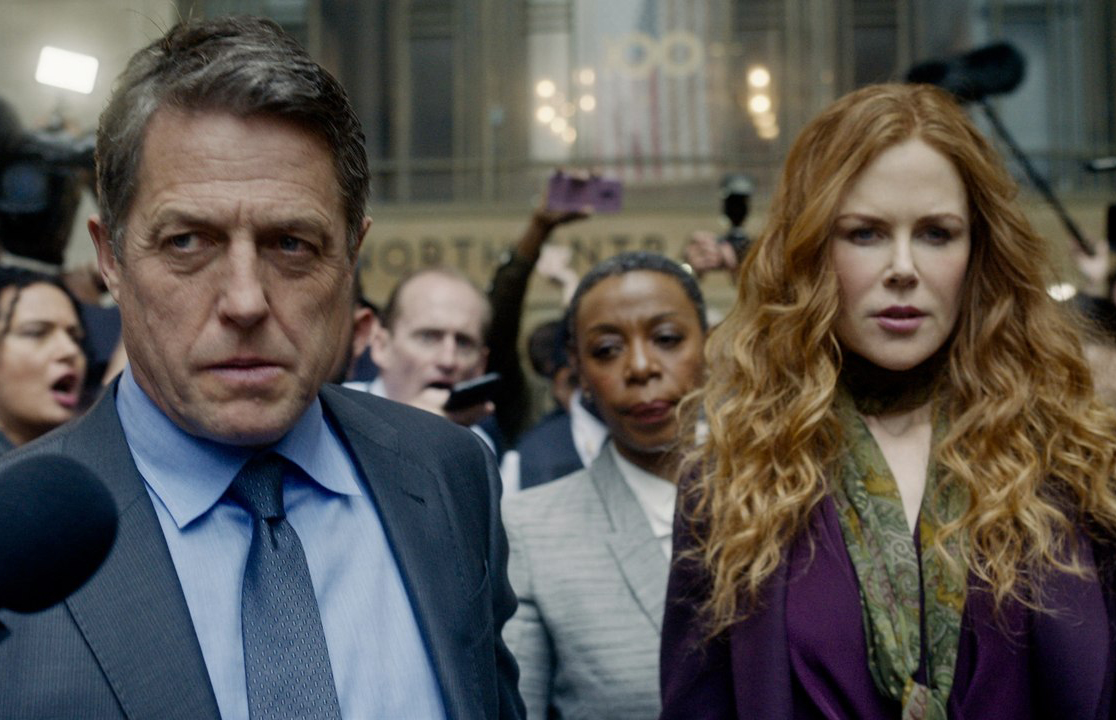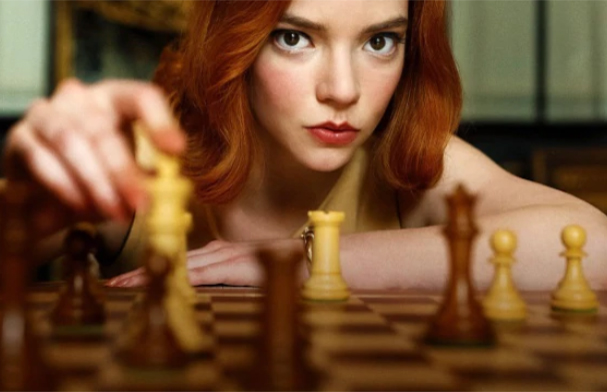‘Borat’ returns to America’s gullible arms
What if they made a Borat movie where actor Sacha Baron Cohen fools Americans into believing in election polling leading up to a presidential race, and then they are strapped into a horrible rollercoaster ride of late-counting mail-in ballots sent early due to a pandemic and they are literally pissing their pants?
No? Too ridiculous? Well, consider instead Cohen’s new movie, Borat Subsequent Moviefilm, in which he proves again the P.T. Barnum adage about suckers, that there’s “one born every minute.” There are suckers for Donald Trump, there are suckers for media outlets that chase their own tail, and there are suckers, period, lining up to believe whatever Cohen’s heavily disguised characters pranking the streets of America tell them.
By this time, everyone should recognize Cohen’s Kazakhstan character since his 2006 moneymaker, Borat: Cultural Learnings of America for Make Benefit Glorious Nation of Kazakhstan, was such a global smash. In fact, the Borat sequel riffs on this, as Americans spot him on the street and ask for an autograph. That’s why Borat/Cohen is heavily in disguise most of the time here. But what hasn’t changed, 14 years later, is the slapdash look and feel of his movies. Inspired amateurism caught on found footage continues to be the guiding aesthetic.
And that’s actually a good thing. Cohen knows that part of his character’s appeal is that he’s a low-tech buffoon from a third world country, aspiring to have all the things that TV tells him America is all about: lavish mansions, breast-implanted models on his arm (like, for example, Pamela Anderson whom he tried to abduct in the first movie), and free access to media. So phrases like “Make sexy time” and “Very nice” still fit him like a glove.
What shifts this outing into a somewhat less two-dimensional stance than the first is the arrival of his teen daughter, Tutar (actress Maria Bakalova, who’s actually 24), in America, where Borat has been sent by his government to deliver a gift — a famed Kazakhstan performing monkey/porn star shipped in a crate — to President “McDonald Trump” and Vice President “Michael Pence” after the debacle of his first movie left him languishing in a Kazakh prison.
Instead, Borat discovers his daughter in the crate — having eaten the monkey for food — and much reflection on current American culture ensues.
Borat, because of the previous hit movie, finds it hard to dupe rubes without donning a series of elaborate costumes. But the genius stroke here is to present Borat as a package deal — pulling off stunts alongside a daughter who grew up in a cage in her racist, misogynist homeland, but who suddenly learns in America that all the “handbook” truths about women she’s been told since birth — that they can’t drive cars or touch their own private parts — were actually lies. So as Tutar slowly develops “wokeness,” Borat Subsequent Film actually manages to sidestep most of the criticisms leveled against the film’s gross-out crudity.
Father and daughter make a pretty good team. And despite the cruel, intentionally offensive commentary from our main character, the sequel does manage to leaven what could have been a sour message about America drowning in political toxicity and a pandemic by including some genuinely sympathetic American souls out there, people who try to correct Borat’s and Tutar’s misimpressions.
Another thing that mitigates the charges of racism and misogyny is the relative parallels we see existing in some set pieces shot around the USA. (A militia-attended rally in which Cohen leads a racist sing-along with the crowd actually ended with him getting chased offstage by gun-toting Trump fans who didn’t dig his satire.) Again, it’s hard to pin down which of the participants — whether it’s the affable QAnon-spouting dudes or the breast implant doctor who uses the word “titty” during an intake session or others — are real and which are in on the joke. That’s always been an issue in Borat movies.
But the people who can’t escape being legitimately pranked are actually bigger targets, including Trump lawyer Rudy Giuliani, who somehow manages to lower our opinion of him to subterranean levels as he allows himself to get very cozy with Tutar (posing as a teenage anti-Biden TV journalist) in a hotel suite. Cringe levels are very high here. Of course Giuliani has cried foul and expressed outrage that anyone would think that being caught on camera with his hand stuck down his pants in a hotel room with a young girl was anything but perfectly innocent. Yet, as Cohen has tweeted while sharing that clip from the movie, “It is what it is.” You can draw your own conclusions about whether Rudy is merely in on the joke, or is actually the joke himself, and if that joke, in a nutshell, tells us a lot about the problematic nature of American culture and politics.
Shown on Amazon Prime.
Hugh Grant and Nicole Kidman come undone
In the first few moments of HBO’s The Undoing, you might be lulled by the cozy pairing of Hugh Grant and Nicole Kidman into thinking this is a rom-com. Of course, it’s not. It’s HBO, so it’s got the disturbing opening credits style of their past prestige dramas (lots of slow-mo, lens flare and quick cuts), plus the limited series was created by David E. Kelley, who did that other HBO series starring Kidman as a concerned mom with issues surrounding an elite private school (that would be Big Little Lies). Grant plays an oncologist and their marriage seems to stay strong through cute banter and sexy innuendo. But enter a young mom (Matilda de Angelis) with a habit of casual breastfeeding and aggressive nudity, and an older kid attending the elite school on a diversity scholarship, and all bets are off. As a couples’ therapist, Kidman offers textbook advice to patients but doesn’t read the warning signs around her. It doesn’t take us long to start doubting people’s cover stories and pulling at the threads. We’ve only seen two episodes, but we suspect that few people are what they seem. Director Susanne Bier (Bird Box) has got a good grip on misdirection and upsetting expectations. We hope it all unravels nicely.

Queen of her castle
Prodigies make great dramatic subjects. Whether it’s the piano-banging kid in Rush, or the fallen Olympic skater played by Margot Robbie in I, Tonya, we know that the flipside of total commitment to competition is a certain amount of craziness and emotional turmoil. In the limited Netflix series The Queen’s Gambit, Anya Taylor-Joy plays Beth Harmon, an orphan with abandonment issues who discovers she has a knack for the chessboard.

You’d think making chess seem dramatic would be a challenge. With her wide-set gaze and ‘50s bob, Taylor-Joy (seen in The Witch, Split, and Emma) makes her character mesmerizing: whether she’s staring down a Russian chessmaster or gazing up at her ceiling at night, conjuring (with the help of stolen tranquilizers) an imaginary board to work through strategic openings.
Though not a true story, the details feel spot-on, if somewhat hyper-realistic, whether it’s the paternal presence of chess-tutor janitor Bill Camp or orphanage roomie Moses Ingram, the gaudy wallpaper in every suburban home, or the Gibson-swilling adoptive mom (played by Marielle Heller).
Prodigies always seem to head for a crash, and The Queen’s Gambit is no exception. The world of competitive play brings in characters like chess hustler Benny Watts (Thomas Brodie-Sangster, last seen in Game of Thrones), converging in a series of exotic venues — Mexico City, Las Vegas, Paris, Russia — where Beth shuttles between blinding sunshine and dark, shadowy rooms. Taylor-Joy, haunted by the loss of a mother and struggling to feel connected with normal teen joys — boys, pop music — keeps our attention riveted on the 64 squares set in front of her, the chess timer always ticking away by her side.


